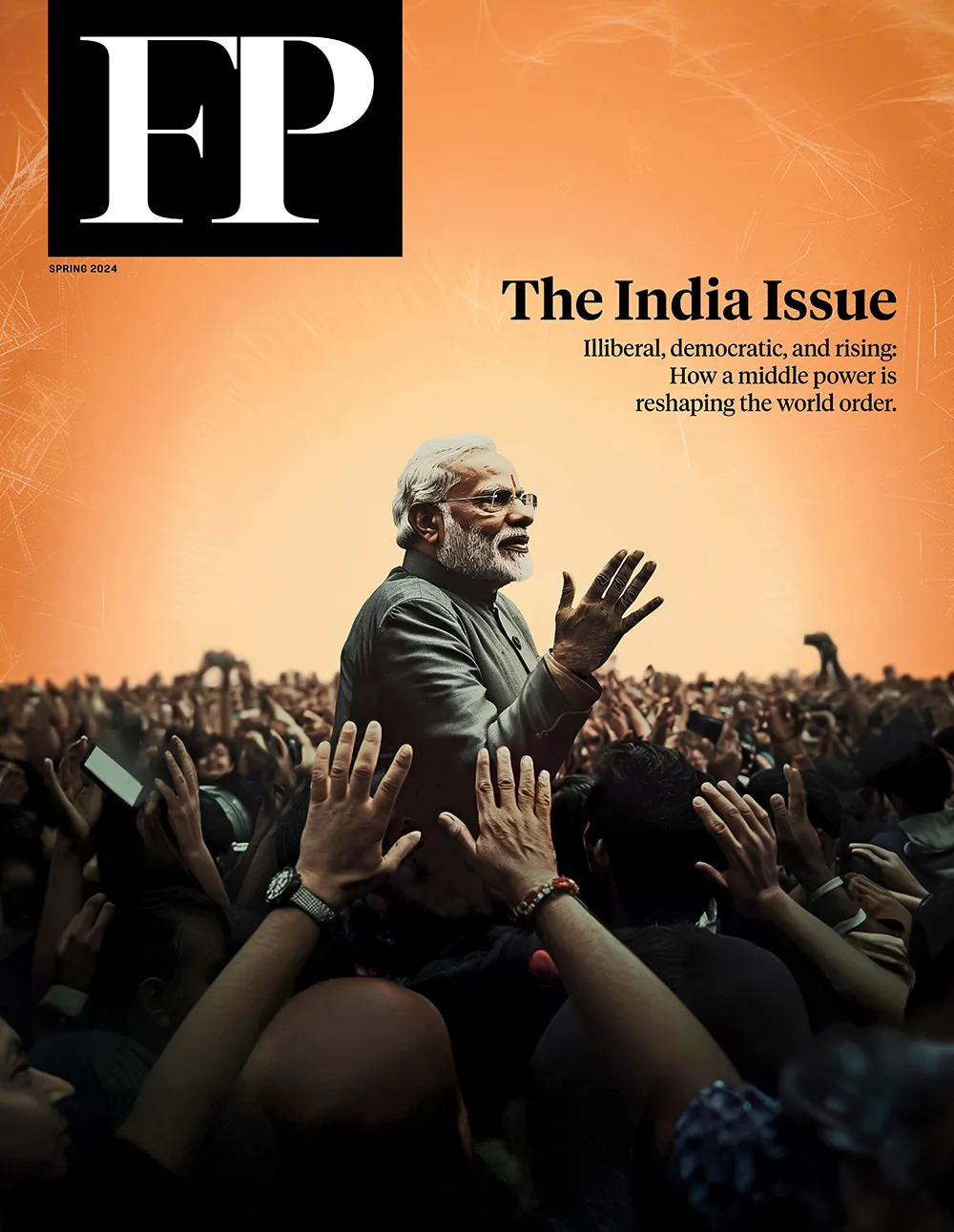Unmasking the false reformer
Over the last ten years many Western politicians and scholars took the road to Damascus holding out hope that the young Syrian President Bashar Assad who inherited power from his father Hafez Assad — who created the first political dynasty in an Arab republic — would lead Syria out of the political wilderness and place ...
Over the last ten years many Western politicians and scholars took the road to Damascus holding out hope that the young Syrian President Bashar Assad who inherited power from his father Hafez Assad -- who created the first political dynasty in an Arab republic -- would lead Syria out of the political wilderness and place it on the path of political and economic reform. There was a naïve assumption that Bashar had the makings of a modern leader because he was in part Western educated, spoke relatively good English, and married a professional woman who worked as an investment banker in London. Many projected their own wishful thinking and illusions on the new leader who spoke about reform and modernization, believing that he would end more than 40 years of repressive Baathist monopoly on power that has arrested the development of a once vibrant country that boasts Aleppo and Damascus, two of the most important cities in the history of the Levant. The view was that engaging Bashar and dangling political and economic incentives would encourage him to reform domestically, remove him from Iran's orbit, and distance him from the radical Islamists in Hamas and Hezbollah, paving the way for eventual peace with Israel.
Over the last ten years many Western politicians and scholars took the road to Damascus holding out hope that the young Syrian President Bashar Assad who inherited power from his father Hafez Assad — who created the first political dynasty in an Arab republic — would lead Syria out of the political wilderness and place it on the path of political and economic reform. There was a naïve assumption that Bashar had the makings of a modern leader because he was in part Western educated, spoke relatively good English, and married a professional woman who worked as an investment banker in London. Many projected their own wishful thinking and illusions on the new leader who spoke about reform and modernization, believing that he would end more than 40 years of repressive Baathist monopoly on power that has arrested the development of a once vibrant country that boasts Aleppo and Damascus, two of the most important cities in the history of the Levant. The view was that engaging Bashar and dangling political and economic incentives would encourage him to reform domestically, remove him from Iran’s orbit, and distance him from the radical Islamists in Hamas and Hezbollah, paving the way for eventual peace with Israel.
Before the demonstrations began last month, Syria had the distinct shame of being the only country with the oldest and the youngest political prisoners in the world: The 80-year old human right activist, Haitham al-Maleh, and the 19 year old student blogger, Tal Mallouhi. In a chilling scene in one of the videos distributed by the opposition, "the banality of evil" is on full display. Rustum Ghazali — who tormented Lebanon as head of Syrian intelligence prior to the forced pullout of Syrian forces in 2005, and who was sent by Bashar Assad to Dara’a to assure the notables of the city of their president’s good intentions, says matter-of-factly: "We have released the children", a reference to the spark that ignited the uprising — the arrest of a few children caught writing anti-regime graffiti.
In the last few weeks, Bashar’s words and deeds in the face of nationwide peaceful, popular demonstrations demanding freedom and empowerment show once again how contemptuous he is of his own people. The reaction has been predictable — a mixture of brute repression, live ammunition, mass arrests, thinly veiled bribes in the form of salary increases, some vague talk about reform, the use of paramilitary elements from the Alawi community as snipers directly targeted protesters in the city of Latakia, and now today’s reports that at least 25 have been killed by security forces in a day of mass protests across the country. The regime has been true to form in trying to demonize and delegitimize the opposition as "traitors", "dupes" and "spies" serving Syria’s enemies. When Bashar spoke days after protests started and with scores of dead and injured, he was his usual self: Smug, petulant, arrogant, and in denial. He accused his people of being tools in the hands of outside "conspirators" and, like other Arab despots, accused satellite television stations of incitement. His contempt for those millions of Arabs from Algeria to Yemen — yearning to be treated as real citizens and not as mere subjects by their governments — was jarring, especially when he described their uprisings as a "crazy fad".
Some of the elements that sparked the uprisings in Tunisia, Egypt, Yemen, and Libya exist in Syria: a young population alienated from a narrow, predatory ruling coalition (with the president’s extended family and the Alawi minority at its core), a degraded economy with a growing army of unemployed and underemployed, increased repression of human rights, and a suffocating culture of corruption, discrimination and intimidation. Yet the demonstrators initially framed their struggle in bold moral terms. Whereas in Tunisia and Egypt the collective cry was "the people want to bring the regime down," in Syria the aching cry was "the Syrian people cannot be humiliated."
***
From his early days in power, Bashar tried to ameliorate the stark predicament of his regime — a lack of legitimacy — by raising the possibility of reform, releasing some political prisoners, and tolerating the short lived "Damascus spring," a period during which reformers and human rights activists tried to engage in real politics. However, when reformers began to call for the dismantlement of the draconian Emergency Law — in effect since 1963 — and sought the end of the "leading" role of the Baath party in politics and society, the regime returned to form and the promising spring morphed into a dark winter. At best, Bashar merely wanted to be a modernizer: to add more computers into an ossified bureaucracy, to allow the Syrians the privilege of owning cell phones, to create the fiction of an independent media by licensing a new newspaper that serves the regime, albeit in a less vulgar fashion. A nascent banking system and a bourse to serve the interests of the new business monopolists, including his extended family, would look nice, too.
But the underlying reality is much gloomier: Syria does not have a serious university or research institution, a notable press, hospitals with reliable medical care, or any efficient state agency — save the institutions of repression. Indeed, the ingrained inertia of the current Assad regime, its hollow and brittle institutions, and the very nature of the political system, including its instruments of coercion, prevents it from engaging in serious reform or from delivering on the requirements of regional peace. The regime may well have finally lifted the country’s Emergency Law this week, but that will do little to change the underlying authoritarian realities: Article 8 of the constitution (which establishes the primacy of the Baath party in state and society), the illegality of political parties, and an ongoing media environment of censorship and craven dependence.
In many of these ways, Bashar has simply carried on the authoritarian legacy of his father, Hafez Assad. But whereas the elder was also known for political cunning and considerable tactical dexterity, these are qualities markedly absent in his son. Indeed, it was said that Hafez Assad could have written the sequel to Machiavelli’s The Prince. He was a cold-blooded realist, not averse to the use of violence when faced with a challenge, but not necessarily as the first option. The elder Assad understood power, and more importantly, its limitations; he was painfully aware that Syria was a truncated state lacking the resources of Iraq and the historic cultural and political weight of Egypt. But he compensated for that by his ceaseless quest for alliances grand and small, particularly with Saudi Arabia and Egypt, and managed to give Syria a leadership role that was incommensurate with its economy, geography, and demography. Hafez Assad was not driven by ideological considerations, although he wrapped himself with the cloak of Arab nationalism. He was willing to collaborate with the Islamists, but he deeply disliked them and was more than willing to match their violence with greater ferocity. When he began his opportunistic alliance with Iran in 1979, he was in the driver’s seat because revolutionary Iran was weak and it needed Syrian military and political support after Iraq’s invasion in 1980.
By contrast, Bashar lacks his father’s patient cunning and understanding of the limits of power. While the elder Assad was deliberate, cautious, and laconic, the younger is reckless, flippant, and loquacious. And he has based Syria’s regional standing on the naïve assumption that leading a foreign policy based on "resistance" to the West and Israel would provide it with immunity against its domestic opposition — which is now proving to be a case of diminishing returns. After more than a decade in power, Bashar has squandered much of his father’s pan-Arab legacy and weakened Syria externally in its over-dependence on a pervasive Iranian influence throughout the region. As a result, Syria has lost much influence in its own backyard and has seen its power in the Levant wane.
In Lebanon, Bashar’s almost subservient relationship with Hassan Nasrallah, Hezbollah’s leader, especially after the humiliating forced withdrawal from Lebanon, has made Syria hopelessly dependent on a non-state actor to help it exert its regional influence. And many in Lebanon and beyond believe that there is more than circumstantial evidence implicating the Syrians and Hezbollah in the assassination of former Prime Minister Rafik Hariri and his companions in 2005. This is in addition to those who were assassinated subsequently, including parliamentarians, politicians journalists, and intellectuals — among them my two colleagues at Annahar newspaper, Samir Qassir and Gibran Tueni .
During Bashar’s reign, Syria’s influence in the Eastern Mediterranean has been largely a function of its willingness and ability to engage in proxy wars with its enemies. In so doing, Bashar has done nothing, for example, to alter a regional environment that might be conducive to pursuing a peace with Israel (admittedly risky), and has in general continued the dynastic inclination for Syria to flagrantly exploit the tragic conditions of its Palestinian, Lebanese, and Iraqi neighbors.
***
It will be difficult even for a regime that survived for years on its brutal legacy of repression to snuff out the desire for change and democracy, now that the barrier of fear has crumbled. For almost 30 years, the regime survived in part because of the horrific legacy of the Hama massacre. Hama was the unfortunate city where four years of low intensity civil war between the Assad regime and the militant Islamists came to an end in February 1982 in an orgy of violence that left in its wake at least 10,000 dead, mostly civilians.
However, the proliferation of Arab satellite television stations, cell phones, and social media will make it more difficult for the regime to engage in such acts of mass killings without the world knowing about it; but that does not mean that the regime will not fight back ferociously. To be blunt, given the nature of the political system and the makeup of Syrian society, genuine political change in Syria will likely not be as peaceful as it has thus far been in the case of Tunisia and Egypt. The violence that the Syrian regime could unleash against a threatening uprising could make the violence in Yemen today look modest in comparison. Minority based regimes such as the one in Syria will fight back with tenacity and show no mercy. The regime has convinced many members of other religious minorities, mainly Christians and Druze, that it is the only guarantor of stability and that its demise will lead to civil war. But recent demonstrations in Homs and other cities show that Syrians from all religious backgrounds are participating in the protests, thus undermining the regime’s threat of sectarian chaos, although sectarian tension and even violence is still possible.
The gifted Syrian poet Muhammad al-Maghout summarized it best when describing the Syrian republic of fear thus: "I enter the bathroom with my identification papers in my hand." For all of the previous reasons, we must see Bashar as he truly is: The product of a cruel system, steeped in parochial loyalties, nurtured by graft and corruption, and justified by deceptions, lies and revisionism, all the while hiding behind a façade of militant Arab nationalism claiming "Resistance" against Israeli-American hegemony.
Standing opposite this is the prospect of a representative and accountable government in Syria that struggles to regain its occupied territory by peaceful means and focuses on rebuilding its economy and civil society. This would transform the whole Levant. It would inject new positive dynamics in Lebanon and Palestine, strengthen the peace camp in Israel, and contribute to the peaceful development of the new Iraq, in addition to checking the harmful ambitions of Iran and its allies. Nor is this a pipe-dream: Modern Syria has had a long and proud tradition of nationalist and secular political movements and parties, despite the fashionable claims to the contrary that insist (especially after the events in Egypt and Tunisia) that the only alternative to Assad is the "dreaded Islamists."
If the Obama administration wants to be "on the right side of history" in Syria, as it was in the case of Tunisia and Egypt, it has to forcefully say that and act on it. The U.S. cannot of course determine the future of Syria; this is the responsibility of the Syrian people. But the U.S. can help shape and influence the behavior of both the regime and the opposition, assuming that the demonstrations will continue and produce a more cohesive leadership. Clear, consistent messages of support should be sent to all those Syrians willing to invest in positive political change. The U.S. should assure the Syrian people that it will use its influence to prevent and avoid sectarian violence, that it will not tolerate retribution by any group, and that it will lean on its friends in the region to refrain from exploiting events to serve their narrow interests. Putting Syria on the path of political reform and democracy will be long, painful, and yes, costly. Developing a cohesive and organized opposition with broad popular appeal will be daunting. But watching the brave Syrian men, women, and children exercising their rights as citizens in the face of one of the most repressive regimes in the Middle East leads one to believe that the Syrians have started their long and arduous march toward freedom.
Hisham Melhem is the Washington Bureau Chief of Al-Arabiya News Channel, and correspondent for the Lebanese daily Annahar. Follow him on twitter @hisham_melhem
Hisham Melhem is the Washington correspondent of Radio Monte Carlo, Paris, and writes a weekly column for Alhurra television’s website.
More from Foreign Policy

The Day After Iran Gets the Bomb
Scholars and policymakers are still trying to understand what would happen after Tehran acquires a nuclear weapon.

U.S. Intelligence Is Facing a Crisis of Legitimacy
Bad-faith attacks are putting U.S. security in danger.

The U.S. Navy Can’t Build Ships
Decades of deindustrialization and downsizing have left America without shipyards to build and maintain a fleet.

The Woman Inheriting AMLO’s Revolution
If she wins Mexico’s presidency, Claudia Sheinbaum’s most daunting political challenge will be persona, not policy.




